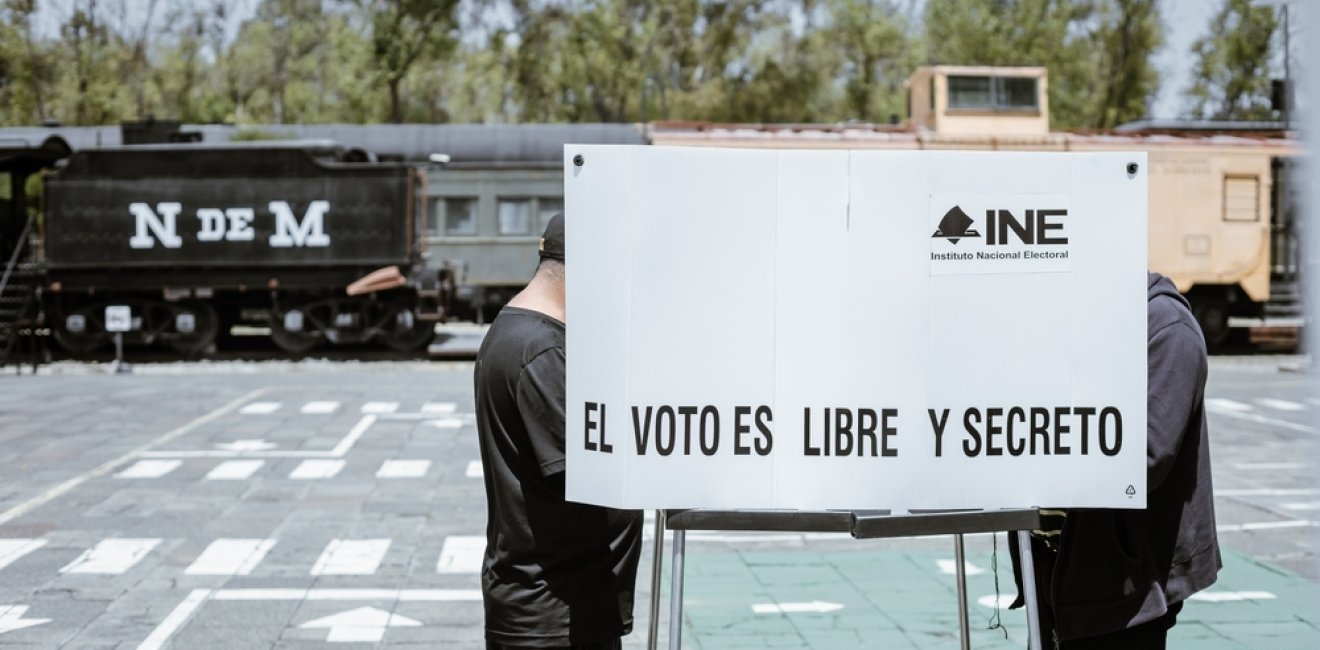Our country is currently undergoing what is recognized as the largest electoral process in its history. The upcoming federal election will determine the next President of Mexico, along with 128 Senators and 500 Deputies of the Lower House. Over 20,000 positions are up for election, including eight governorships, the Head of Government of Mexico City, 30 Local Congresses, and over 2000 Municipal Councils, Municipal Boards, and Boroughs will be elected.
This election is pivotal for our nation. The current ruling party has led a populist government, clearly indicating its desire for absolute control, jeopardizing the balance and separation of powers, and expanding activities by military forces in vast areas of government functions. Their strategy aims to secure the majority of votes in both the executive and legislative branches, subsequently submitting bills to modify laws and regulations to control the judiciary. This situation is deeply concerning for liberals, and thus the opposition is now seeking to highlight the consequences of the lack of balance of powers. The information process requires opening eyes to the risks of following the ideology of the ruling party.
Informed citizenship plays a crucial role in public participation. Young people must understand that they will determine the outcome of this election if they cast their votes. However, it is essential for them to vote knowledgeably, analyzing the proposals of the two female candidates leading the race. The primary goal at this moment is to encourage everyone to vote and express their support or opposition to the ruling party. We must not forget that citizens are the bosses of the "chosen ones," tasked with designing a functional governance model in our country, leveraging our geographic position and our relationship with our northern neighbors, as well as our prominent role in Latin America. Undoubtedly, much is at stake, and numerous issues must be addressed, with citizen participation being the most significant element to ensure that it is truly the vote of the majority that determines the future of the country.
Therefore, citizen participation in this electoral journey is crucial for upholding democracy in Mexico. Citizens must exercise their right to vote not only as a granted privilege but as a responsibility derived from our Constitution; it is an obligation of all citizens to fully exercise their civil and political rights. As citizens, we can influence the political, economic, and social direction of our country. Our vote must be informed and should not be swayed by short-term gifts or economic contributions.
Citizens can participate as Polling Station Officials when selected and trained beforehand by the National Electoral Institute, responsible for ensuring the integrity of the electoral process. We must carry out this crucial role in a manner that curbs actions that may jeopardize the elections and ensures a transparent and legal process, leaving behind the fraudulent practices of past elections.
Additionally, we can participate as electoral observers to ensure the legality and transparency of this electoral process by accrediting ourselves beforehand with the National Electoral Institute.
In this way, citizen participation becomes a fundamental element in promoting transparent electoral processes and strengthening the electoral system and democratic development of our country.
The active participation of citizens in this journey will be fundamental to ensuring legitimacy and fairness in the democratic process. History will be written, but it requires a vast majority to ensure a fair outcome.
Authors



Mexico Institute
The Mexico Institute seeks to improve understanding, communication, and cooperation between Mexico and the United States by promoting original research, encouraging public discussion, and proposing policy options for enhancing the bilateral relationship. A binational Advisory Board, chaired by Luis Téllez and Earl Anthony Wayne, oversees the work of the Mexico Institute. Read more

Explore More
Browse Insights & Analysis
Greenland’s New Governing Coalition Signals Consensus

The Future of France's Far-Right Party

Ukrainian Issue in Polish Elections



